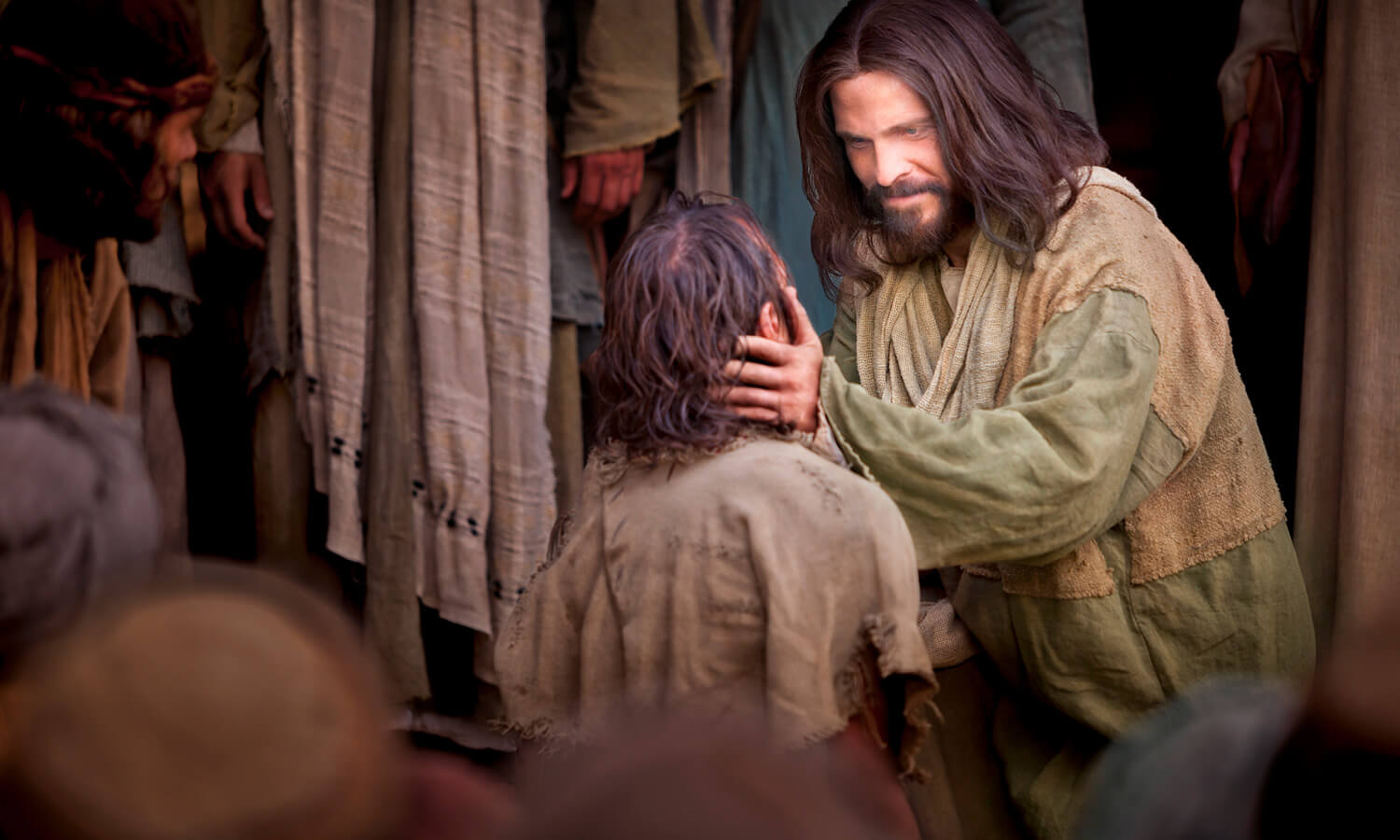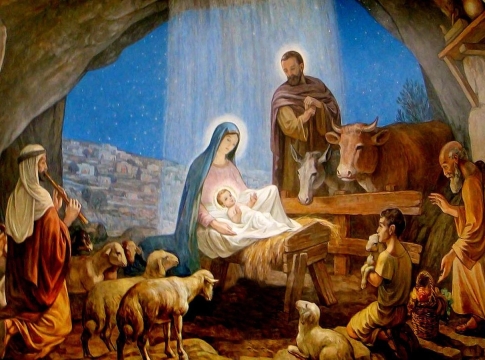
The Gospel contains numerous instances where Jesus prevented the individual who had been healed from sharing the good news. Take Mark 1:40–44, for instance (see also Matthew 8:2-4).
And a leper approached Him, pleading with Him, saying on his knees, “If you will, you can clean me.” With sympathy, He reached out, caressed him, and murmured, “I will; please be clean.” And without delay, the leprosy disappeared from him, and he was cleansed. “See that you say nothing to anyone, but go, show yourself to the priest and offer for your cleansing what Moses commanded, for a proof to them,” Jesus sharply chastised the man, sent him away, and said to him.
At first glance, this appears strange: why would Jesus want the world to be unaware of the miracles He worked? To discover the solution, let’s dig a little farther.
Verses about Jesus telling people to keep quiet
Jesus advised people to remain silent about their healing in a number of other instances. Jesus “sternly” or “strictly” commanded them almost every time not to tell anyone what had transpired.
- Two blind men in Matthew 9:27-31
- People with various illnesses in Matthew 12:15-16
- Mark 5:41–43 describes Jairus and his wife, whose daughter was raised from the dead.
- A guy with a speech problem and deafness in Mark 7:35–36
- A blind man in Mark 8:22-26
Other times, Jesus prohibited His disciples from announcing that He was the Christ:
- Matthew 16:20; Mark 8:29–30 state that “He strictly charged the disciples to tell no one that He was the Christ.”
- Before His resurrection, the three disciples who had witnessed Jesus in His heavenly glory were not permitted to tell anybody about it (Matthew 17:1–9; Mark 9:1–9).
Likewise, devils were forbidden from identifying Jesus:
- “And He gave them the strict directive to keep Him hidden.” (Mark 3:11–12)
Jesus’ mission was not primarily about miracles
Jesus wasn’t here to establish Himself as a healer. He did not want His ministry to be hampered by too much attention being paid to His miracles.
This is indeed what happened after Jesus had healed the leper in Mark 1. Jesus commanded the leper to go show himself to the priest for inspection. This was important because in this way, objective proof for his healing could be obtained and the healed leper could then enter society again (as ordained in Leviticus 14:2-31). Jesus sternly commanded him to keep quiet, but the healed man did the opposite. As a result, Jesus could not openly enter a town anymore! (Mark 1:45). The miracles were meant to support Jesus’ message about the coming Kingdom of God (as described in John 2:23), but now people just came because of the miracles. Many did not believe in Him, but just wanted to see the signs for themselves (see John 6:1-2; 12:36-37).
False expectations of the Messiah
Many Jews expected the Messiah to arrive in ways that were not accurate. They believed that the Messiah would establish his earthly kingdom and free them from the Roman tyrants. But according to Matthew 12:18–21, Jesus did not come to topple any governmental authority; rather, He came to teach God’s justice and kingdom and to suffer on the cross in order to atone for our sins.
Jesus wanted people to understand who He was and what He was about before He told them He was the Messiah (or that He had performed miracles that proved He was the Messiah; see Isaiah 26:19; 29:18; 35:4-6)[1]. Matthew 16:21–22 (see also Mark 8:31–32), which was written right after Jesus told His followers not to proclaim Him to be the Christ, makes this imperative evident.
Jesus then started to explain to His followers that He would have to journey to Jerusalem, endure many hardships at the hands of the chief priests, elders, and scribes, be crucified, and be resurrected from the dead on the third day. And Peter pulled Him aside and scolded Him, saying, “Lord, get away from me!” You won’t ever experience this.
The idea that Jesus’ beautiful rule had to come before [his suffering and death] was still lost on the disciples. While Jesus was primarily focused on spiritual restoration, they were hoping for Israel’s political restoration right then and there. So, at best, their message would have been biased if they had heralded the coming of the Messiah. The same holds true for those who have experienced healing or seen healing miracles. Before disseminating Jesus’ teaching further, they wanted to understand it more thoroughly.
We read about Jesus healing a man possessed by a demon in Luke 8:26–39. This occurs in the nation of the Gerasenes, which is a Gentile (non-Jewish) region. The guy wants to follow Jesus once he is healed, but Jesus tells him to go back to his house and tell everyone how much God has done for them. The man had to tell everyone what Jesus had done, rather than remain silent! And he actually did! (Luke 8:39). Then, we read about Jairus’ daughter in the same chapter. When she passes away at the age of twelve, Jesus brings her back to life. Luke 8:56 describes how Christ orders the parents to keep what happened to themselves. Jesus was back in Jewish land at this point.
This finding supports the theory that Jesus tailored His teaching to the needs of His listeners. He did not (yet) want people to realize that there was a chance they might have false expectations regarding the coming of the Messiah. The news may have traveled more easily when there was less risk because people were unaware of the Old Testament predictions and did not have the (flawed) expectation that the Messiah would bring about political restoration.
After Jesus’ resurrection, people could speak openly
Following His crucifixion and resurrection, Jesus Christ gave His followers the assignment to “be my witnesses in Jerusalem and in all of Judea and Samaria, and to the end of the earth” (Acts 1:8). And they did, following the Holy Spirit’s empowerment. They were now able to discuss Jesus’ miracles in public:
Men of Israel, hear these words: Jesus of Nazareth, a man who was given up in accordance with God’s precise plan and foresight, and who you yourselves know was attested to by God with mighty works, wonders, and signs that God performed through Him in your midst, was crucified and killed by the hands of lawless men. It was not possible for Him to be held by death, so God lifted Him up and released Him from its grip. Acts 2:22–24
Having wrong expectations of Jesus
Many people, including His own disciples (who did so in part even after His resurrection, as shown in Acts 1:6), had false expectations of Jesus during His earthly ministry. Many people still do it today. However, if you place your confidence in Jesus for [everlasting salvation], He will never let you down. He came to bring peace to your heart (John 14:27) and to make peace with your Maker (Romans 5:10–11). As your Lord and Savior, do you acknowledge Him?
[1] Because only God Himself could accomplish these things, Jewish religious authorities used these predictions to declare four indications that would establish the Messiah’s identity:
- Cleansing a leper
- Casting out a deaf and dumb spirit
- The healing of birth defects
- Raising the dead after three days (i.e. the fourth day)
Jesus did all of this (Mark 1:40-44; Mark 7:35-36; John 9:1-7; John 11:38-44)





